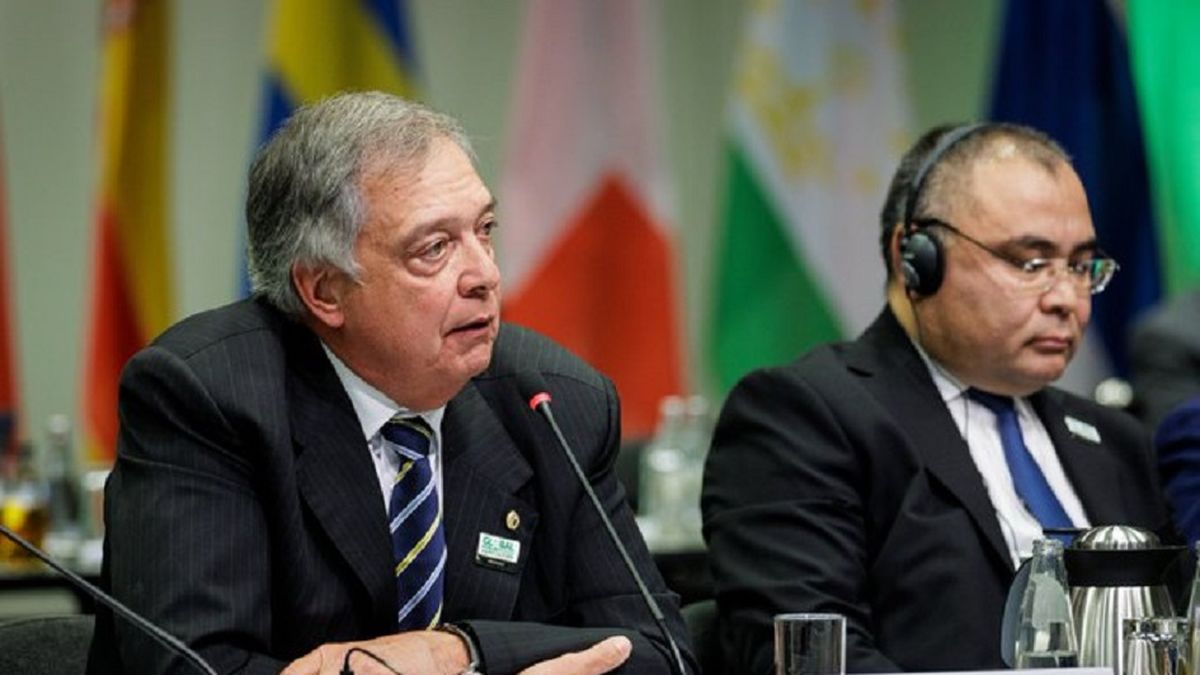The owner of the Ministry of Livestock, Agriculture and Fisheries (MGAP), Fernando Mattoscalled on developed countries to take responsibility and compensate those affected by the consequences of climate change—e.g. Uruguay with the extreme drought last summer—; he did it during Global Forum for Food and Agriculture (GFFA).
The leader is participating in the Global Forum for Food and Agriculture, an agricultural policy conference, organized by the German government, which brings together more than 200 officials from around the world. During his speech, Mattos emphasized the responsibility of developed countries regarding the climate impact suffered by developing regions.
“We demand that the commitment which has been established for many years, by which developed countries must provide the necessary resources to make up for to developing countries that suffer the impacts of climate variability in their agricultural production”, remarked the minister. “The impact of climate change It also generates instability from an economic, social and even political point of view in some cases,” he added.
American presence
Mattos valued the presence of Inter-American Institute for Cooperation on Agriculture (IICA) as articulator of the forum. The hierarch presides over the main body of IICA, the Inter-American Board of Agriculture (IABA), which brings together all the agriculture ministers of America, which is why he also highlighted that they are present at the call.
“The role of IICA It’s very important. It is an organization that brings together 34 member countries, from a very important continent for global food production. Almost a quarter of the food They come from our continent and therefore it is essential that the organization that brings us together can be present in a forum of this importance,” the minister remarked.
The influence of climate change on productivity
The leader highlighted the fact that during the conference, In addition to dealing with topics such as food safety and that the agricultural sector has in the world, it is important to pay attention to the challenges presented by the climate variability in the production. In that sense, he stressed that it is necessary to think about “the challenges of a production that is increasingly subject to the risks of climate variability.”
Meanwhile, he also recalled that the world is facing a reality of great migratory flows. “The uprooting of the land has an explanation and it is that production is increasingly difficult due to extreme weather conditions. They are not only questions of productive losses; There are also problems of sanitary character, of pests, diseases or weeds that, depending on climate change, have a significant impact,” he warned.
For this reason, he specified that the role of science is fundamental to promote the response of new productive technologies that allow generating and facing the stability of the most vulnerable countries and producers in the face of the impact that climate change generates on their realities.
To ensure food security, free trade
Regarding the lack of fluidity in foreign trade, specifically in the food sector, Mattos asked that food trade be fluid and without protectionist barriers. “Protectionism is increasing in this reality of political instability, with wars in Europe and in middle East that generate very important difficulties in supply chains,” he explained.
In that sense, he stressed that “the commercial freedom “It is really threatened because barriers are increasingly being placed that are more difficult to overcome and that also create a factor of difficulty for food exporting countries.”
Source: Ambito




